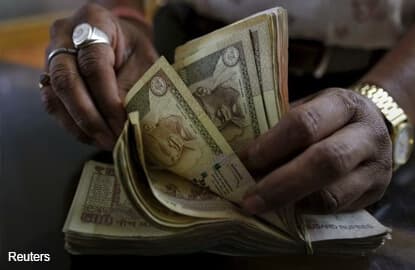
BUSINESS at money-lending agencies has never been better with agents receiving endless calls from potential customers. However, many of these agencies lament that debt collection has become increasingly difficult — clearly not a good time to be in the business.
“In my 20 years of experience, debt collection has never been this bad. And I believe the problem will only get worse in the future,” a licensed moneylender, who wants to be known only as Son, tells The Edge.
“Customers still pay their loan instalments but the problem is that they can’t afford to pay the amount agreed upon. Let’s assume the interest is RM100 per month for a 20-year loan. Today, customers can only afford to pay me RM70 because of the rising cost of living.”
Son says he has had to lower the monthly payments of some customers to ensure that they can afford to repay their debt. “Sometimes, we have to accept a lower amount to keep the loan going, so at least it is not non-performing.”
The CEO of a debt collection agency, whose clients are commercial banks, telecommunications companies and utility firms, blames the economic slowdown for poor debt collection. Some of debtors may have lost their jobs or their salaries may have remained unchanged while the prices of goods have shot up, he says.
“We have definitely received more accounts to handle. We’ve seen this over the last few months. I can have a lot of accounts but if people can’t pay, they just can’t. It has definitely got tougher for us to collect from debtors. So far, it has been manageable but we don’t know about next year because we believe the economic situation will get worse,” he remarks.
What is of concern is that not just Malaysian households are defaulting on debts but corporations as well.
Frankie Poon, a director at Tish & Matheson GCS, a global corporate debt recovery firm in Malaysia and Singapore, says, “This year, we’re seeing increased business volume but the success rate of recovery is lower because more companies are going into bankruptcy protection. We foresee more bankruptcies in the coming months for sure.”
According to Yeah Kim Leng, Professor of Economics at Sunway University Business School, poor debt collection could be a sign that the economy is in financial distress but it all depends on the severity of the situation. Besides, he says, there has only been anecdotal evidence.
“Indicators in the banking sector show that loan delinquencies, while slightly higher, are still manageable. Broadly speaking, this means there is no systemic risk to the economy,” he adds.
Official data may not capture transactions in the money-lending industry but the lenders can attest to having been approached by more borrowers since the banking sector tightened its regulations.
Moneylenders also reveal that debt collection started getting tougher around the time the Goods and Services Tax (GST) was implemented on April 1 last year.
If more consumers have turned to moneylenders for loans instead of banks, shouldn’t debt collection problems be an indicator of growing stress in many Malaysian households grappling with mortgages, car loans, credit card debt and personal loans?
At present, Malaysia’s household debt is hovering at close to 90% of gross domestic product — one of the highest levels in Southeast Asia.
The last time the country experienced poor debt collection, which eventually led to a serious non-performing-loan problem, was during the 1997/98 Asian financial crisis. Nevertheless, the circumstances today are vastly different from that period, observes Yeah. “At the time, banks overextended credit and the distress was mainly in corporate lending. Today, what we are seeing is a high level of indebtedness among households.”
He opines that retrenchments seen in recent times, coupled with the rising cost of living and slow income increase, have contributed to the severity of household indebtedness.
While debt collection has become more challenging for many lenders, a leading used-motor vehicle hire-purchase financier has not encountered such problems.
“There has not been any deterioration in collection on a year-to-year basis. We are a bit surprised by our situation as we were expecting to see some impact on our numbers. This is because many people we talk to tell us that borrowers are not paying up.
“The worst time for us was right after the implementation of GST, which was also around the time there was a rationalisation of subsidies.”
Perhaps, consumers would rather not pay their electricity and telephone bills for a few months or not service their smaller loans than have their vehicles repossessed.
Save by subscribing to us for your print and/or digital copy.
P/S: The Edge is also available on Apple's AppStore and Androids' Google Play.